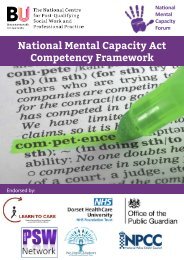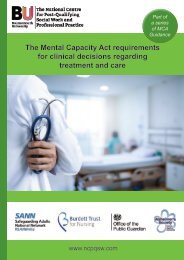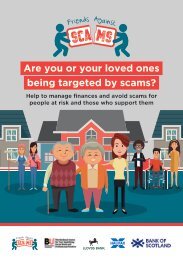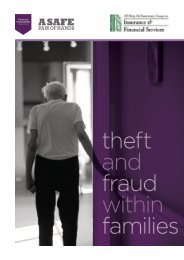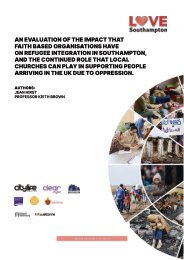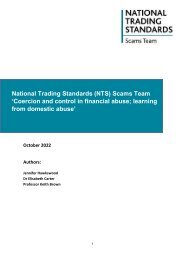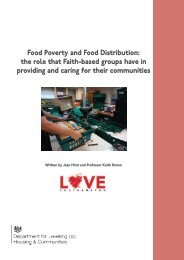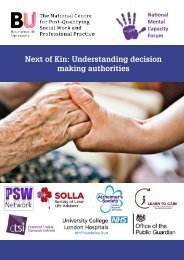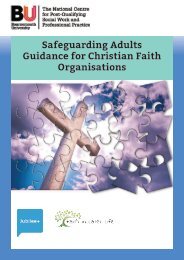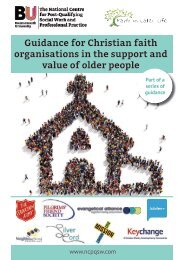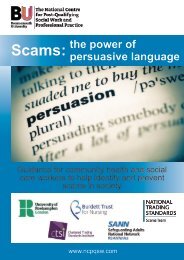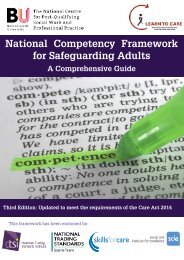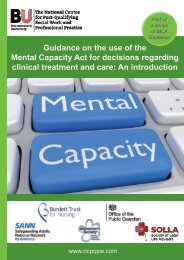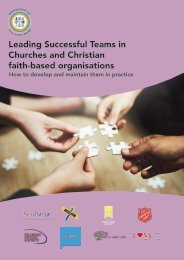Loneliness in Older People - Online
Some of the isolation and loneliness which people in the Fourth Age experience is due to the ageism in our society and in our churches. It is now time for churches to stand-up to the prejudices and discrimination of older people, to challenge the ageism we see in society and show that people in the Fourth Age are valued, celebrated, respected and included. Churches and Christian faith organisations should be leading the way to reach out to older people, to tackle ageist views and attitudes and demonstrate that older people matter.
Some of the isolation and loneliness which people in the Fourth Age experience is due to the ageism in our society and in our churches. It is now time for churches to stand-up to the
prejudices and discrimination of older people, to challenge the ageism we see in society and show that people in the Fourth Age are valued, celebrated, respected and included. Churches
and Christian faith organisations should be leading the way to reach out to older people, to tackle ageist views and attitudes and demonstrate that older people matter.
Create successful ePaper yourself
Turn your PDF publications into a flip-book with our unique Google optimized e-Paper software.
The Impact of <strong>Lonel<strong>in</strong>ess</strong> on Health<br />
“<strong>Lonel<strong>in</strong>ess</strong> can often be associated with poor mental health<br />
and reduced mental resilience, lead<strong>in</strong>g to low mood, anxiety,<br />
depression and lack of confidence and <strong>in</strong>ability to cope. “<br />
Public Health England (2015) identified clear l<strong>in</strong>ks between lonel<strong>in</strong>ess and poor health, with<br />
an <strong>in</strong>crease <strong>in</strong> cardiovascular disease due to lonel<strong>in</strong>ess, equivalent to smok<strong>in</strong>g 15 cigarettes<br />
a day. Social isolation and lonel<strong>in</strong>ess are l<strong>in</strong>ked with various aspects of health decl<strong>in</strong>e due<br />
to poor lifestyles, result<strong>in</strong>g from lonel<strong>in</strong>ess – such as reduced physical activity, poor diet, low<br />
mood and cognitive decl<strong>in</strong>e. <strong>Older</strong> people liv<strong>in</strong>g alone are a specific “at risk” group for health<br />
decl<strong>in</strong>e, due to social isolation, often result<strong>in</strong>g <strong>in</strong> difficulties manag<strong>in</strong>g long-term conditions,<br />
anxiety and depression, decl<strong>in</strong><strong>in</strong>g vision and hear<strong>in</strong>g, <strong>in</strong>creased disability and risk of falls, risks<br />
of malnutrition and cognitive impairment.<br />
<strong>Lonel<strong>in</strong>ess</strong> can contribute to poor health, but poor health <strong>in</strong> itself can cause lonel<strong>in</strong>ess – poor<br />
health can limit physical activity, functional abilities and social <strong>in</strong>teractions; poor physical<br />
health can impact on mood and emotions and contribute to cognitive decl<strong>in</strong>e. An older person<br />
struggl<strong>in</strong>g with social isolation and lonel<strong>in</strong>ess can f<strong>in</strong>d themselves <strong>in</strong> a vicious circle, whereby<br />
their physical and mental health are affected by their isolation and lonel<strong>in</strong>ess, which <strong>in</strong> turn<br />
makes them more socially isolated and alone.<br />
<strong>Lonel<strong>in</strong>ess</strong> can be associated with poor mental health and reduced mental resilience, lead<strong>in</strong>g to<br />
low mood, anxiety, depression, lack of confidence and <strong>in</strong>ability to cope. The Campaign to End<br />
<strong>Lonel<strong>in</strong>ess</strong> (2020) described a “downward spiral “of mental decl<strong>in</strong>e caused by lonel<strong>in</strong>ess - where<br />
the associated low mood and a withdrawal from family and social sett<strong>in</strong>gs results <strong>in</strong> mak<strong>in</strong>g the<br />
person more isolated and lonelier, which <strong>in</strong> turn <strong>in</strong>creases the risks of anxiety and depression.<br />
Every M<strong>in</strong>d Matters (NHS 2020) identified the need to ma<strong>in</strong>ta<strong>in</strong> positive and strong mental<br />
health through activities such as:<br />
• plann<strong>in</strong>g practical support<br />
• stay<strong>in</strong>g connected with others (friends, family, etc.) by phone, emails. etc.<br />
• talk<strong>in</strong>g about worries and concerns (with a trusted person)<br />
• keep<strong>in</strong>g healthy through diet, exercise and regular sleep<br />
• stay<strong>in</strong>g positive (don’t stay glued to the news)<br />
• do<strong>in</strong>g enjoyable th<strong>in</strong>gs and tak<strong>in</strong>g time to relax<br />
15 | <strong>Lonel<strong>in</strong>ess</strong> <strong>in</strong> <strong>Older</strong> <strong>People</strong>



